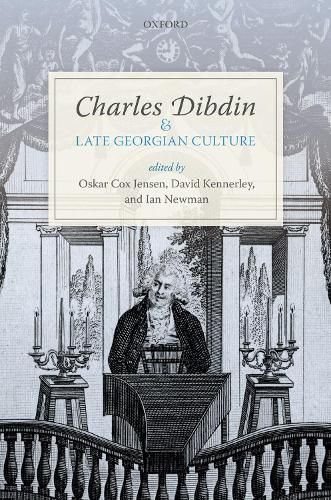Readings Newsletter
Become a Readings Member to make your shopping experience even easier.
Sign in or sign up for free!
You’re not far away from qualifying for FREE standard shipping within Australia
You’ve qualified for FREE standard shipping within Australia
The cart is loading…






Aimed at scholars across several disciplines, Charles Dibdin and Late Georgian Culture centres on the professional life of one, very significant historical songwriter, performer, and theatre manager, who was central to the invention of the one-man show. It is not a biography, but looks at a single career as a way into exploring all avenues of late Georgian cultural life and how they interconnect in unexpected, complex ways. Unified by the involvement of Dibdin and his two sons, discussions span issues of race, entertainment, music, the press, the theatre, fine art, print culture, naval and military history, Austen studies, gender, politics, identity, and commerce, in a critical period of British and metropolitan history. Fittingly, the book’s contributors are leading representatives of many of these fields, who have collaborated on a major re-evaluation of late Georgian culture.
$9.00 standard shipping within Australia
FREE standard shipping within Australia for orders over $100.00
Express & International shipping calculated at checkout
Aimed at scholars across several disciplines, Charles Dibdin and Late Georgian Culture centres on the professional life of one, very significant historical songwriter, performer, and theatre manager, who was central to the invention of the one-man show. It is not a biography, but looks at a single career as a way into exploring all avenues of late Georgian cultural life and how they interconnect in unexpected, complex ways. Unified by the involvement of Dibdin and his two sons, discussions span issues of race, entertainment, music, the press, the theatre, fine art, print culture, naval and military history, Austen studies, gender, politics, identity, and commerce, in a critical period of British and metropolitan history. Fittingly, the book’s contributors are leading representatives of many of these fields, who have collaborated on a major re-evaluation of late Georgian culture.